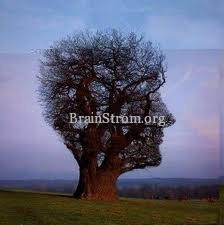One of the benefits of visiting a psychiatrist who also specializes in holistic, complementary or alternative medicine is that he or she can determine whether or not a nutritional deficiency is the cause of some mental symptoms. Nutrients play a critical role in mental health. They are the building blocks of the nervous system. In fact, the brain has first call on the available supply of nutrients. Therefore, the first effects of nutritional deficiencies are often mental symptoms. Deficiencies in almost any of the vitamins and minerals can show up first as emotional or mental symptoms, such as depression, anxiety, or impaired memory and concentration. For example, folate deficiency is a common occurrence in psychiatric disorders, whether organic or functional, particularly in depressive illness.
There are specific nutrients which cause mental symptoms when that nutrient is lacking:
Calcium: Depression, delusions and irritability.
Chromium: Anxiety.
Copper: Depression.
Folic Acid: Apathy, depression, insomnia, paranoia.
Iron: Depression.
Magnesium: Anxiety, confusion, hyperactivity, nervousness, restlessness.
Niacin (B3): Confusion, depression, emotional instability, irritability, memory impairment.
Pantothenic acid (B5): Depression, irritability.
Potassium: Depression, insomnia, mental impairment, nervousness.
Pyridoxine (B6): Depression, irritability.
Riboflavin: Depression, nervousness.
Thiamin: Confusion, irritability, memory loss, nervousness. Individuals with a thiamin deficiency can develop Wernicke-Korsakoff syndrome, which is characterized by confusion, mental changes, abnormal eye movements, and unsteadiness that can progress to severe memory loss.
Vitamin B-12: Depression, irritability, dementia, mental disturbances, moodiness.
Vitamin C: Depression, irritability.
Zinc: Depression, irritability, lethargy, memory impairment, paranoia.
Omega-3 Fatty Acids: Depression.
Low Cholesterol: Depression.
There are three amino acids that are most directly related to mood and depression: phenylalanine, tyro-sine, and tryptophan. Phenylalanine and tyrosine produce the neurotransmitter norepinephrine, and tryptophan is eventually converted to serotonin.
Research has proven the effectiveness of amino acid therapy in fighting depression. Both phenylalanine and tyrosine-which is created in the body from phenylalanine-have been found to be as effective as the antidepressant drug imipramine. Phenylalanine has also been shown to reduce pain by preserving brain levels of endorphins, the body’s natural painkiller. Tyrosine is helpful in the treatment of PMS and chronic fatigue syndrome. Tryptophan, which the body converts into the precursor 5-hydroxytryptophan (5-HT), has also been found to be as effective as the synthetic antidepressants. (Cass)
Correct testing and understanding of deficiencies or overloads can pinpoint the causes of many mental symptoms, thus opening the door to hope and recovery. Positively demonstrating that nutrient supplementation improves mental disorders and proving that mental disorders are in fact due to nutritional deficiencies is difficult, however. Much research needs to be done to further explore this area.
Sources
Goldberg, Ivan, M.D. A Medline Search. “Folate, Vitamin B-12 and Depression“.
Wipond, Rob. “Healthy Brain, Happy Mind”.
Kapllan, Bonnie. “The Relationship Between Nutrition and Mental Disorders“.
Cass, Hyla M.D. “Nutritional Approaches to Mental Health“.
Thanks for installing the Bottom of every post plugin by Corey Salzano. Contact me if you need custom WordPress plugins or website design.

